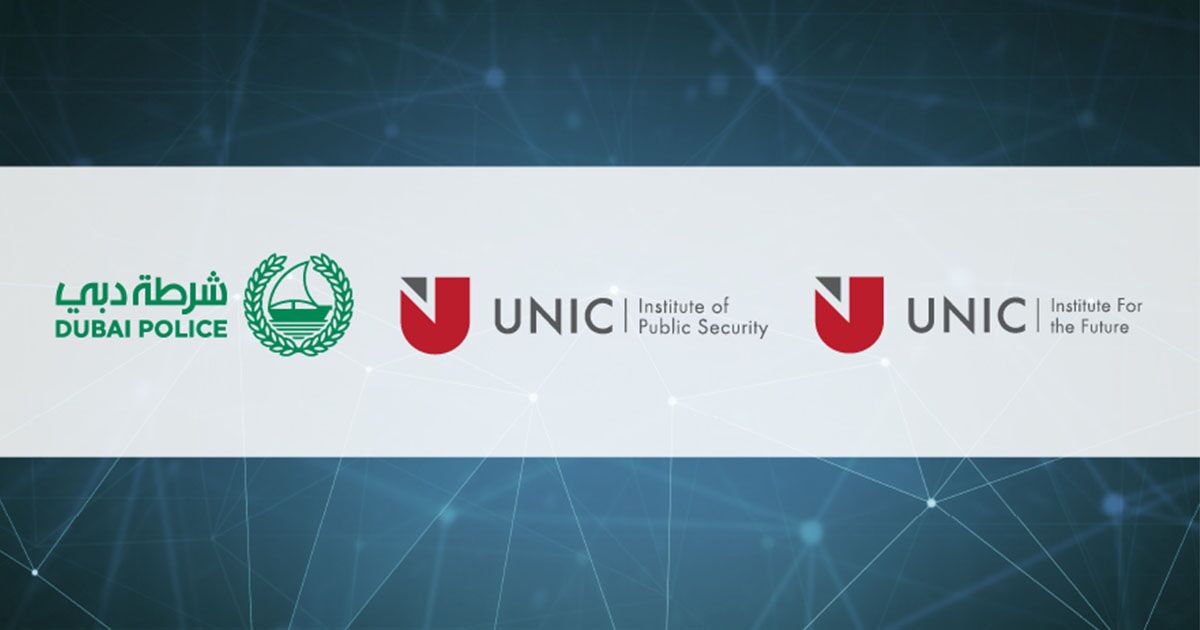UNIC’s IFF and IPS launch ‘Financial Investigations for Digital Assets’ Diploma Programme for Dubai Police G.H.Q employees
The launch of the programme was announced by Dubai Police G. H. Q during the 2nd edition of the World Police Summit, which concluded its work at the Dubai World Trade Centre after three days full of sessions and workshops. The summit covered a range of topics, including current challenges facing police forces and the latest technological advancements, strategies, and innovations across the law enforcement and security spectrum, as well as the leading global challenges facing the efforts to combat crime and maintain safety and security. The summit was attended by more than 200 experts in police and law enforcement.
The launch of the programme falls within a Memorandum of Cooperation signed between IFF and the Dubai Police G.H.Q in November 2021, aiming to enhance their collaboration and coordination in areas of mutual interest, such as the practical application of blockchain and digital currency in law enforcement. The partnership began with offering all Esaad Cardholders the opportunity to pursue UNIC’s leading graduate programme, MSc in Blockchain and Digital Currency.
Commenting on the launch of the new Diploma programme, Major General Jamal Salem Al Jallaf, Director of the General Department of Criminal Investigation, said that crimes could take many forms and are constantly evolving, and criminals have become more skilled at carrying out criminal activities, especially those associated with technology.
“This requires effective responses grounded in continuing to develop the security and operational system in cooperation with partners and institutions from government and private sectors to unify efforts and attain our common objectives of enhancing the security of societies”, he continued. “This diploma enhances the Force’s efforts to combat emerging crimes and proactively prepare for any evolution of criminal tactics,” Al Jallaf added.
Dr. Major General Saleh Abdulla Murad, Director General of Gen. Dept. of Human Resources, stated that the Diploma comes within the framework of the Force’s keenness to train and qualify human cadres and refine their expertise with advanced and up-to-date training programmes through establishing partnerships with some of the most prestigious educational institutions in the world.
Dr Charis Savvides, Professor at the Institute For the Future, University of Nicosia, said: “The structure and content of this programme is the result of our close and fruitful cooperation with the Dubai Police; a true visionary of technological innovation in policing and crime fighting. The courses, which are addressed to police investigators, prosecutors, judges and other officials of the criminal justice system, are delivered by experts in the field, including practitioners in the areas of law and police investigation,” he added.
Major Saud Al Mutawa, Head of the Virtual Assets Section at the General Department of Criminal Investigation, said that the Diploma targets investigators and specialists in combating financial crimes involving virtual assets, such as money laundering, extortion, tax evasion, and pyramid schemes.
The diploma programme covers several topics including, blockchain technology and digital assets, evaluating characteristics of digital assets, identifying and analysing suspicious crypto transactions, enhancing capacity to manage and recover digital assets, assessing money laundering techniques using virtual currencies, detecting illegal financial transactions, judiciary steps for confiscation and asset recovery as well as risks of money laundering in cryptocurrencies.

